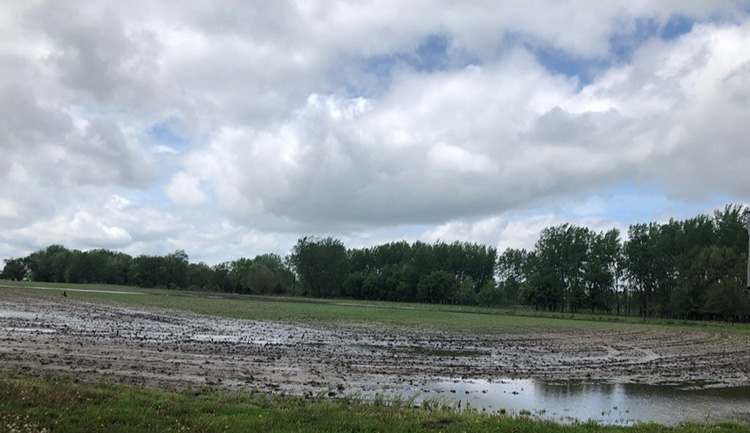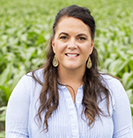
The record cold, all the snow, and now the intense flooding that’s occurred since mid-March really has played havoc on moving forward with fieldwork. All that wet weather—rain and lots of it, on top of melted snow packs has proved to be too much. The ground has thawed, but the fields transformed into lakes, delaying the start of spring fieldwork.
To say it has been exhausting would be an understatement. We don't complain; well aware that others have it worse. We feel fortunate that all our income isn’t derived from crops, but our checkbook reminds us that crops help fund this farm.
Here it is, the third week of May, and we have yet to plant any corn. A year prior all of our corn was planted by the seventh of May. On average, we have three-quarters of our corn crop planted by early May. This year, we haven't even filled the planter.
No rest for the weary, with a dairy farm, work still continues, even when you cannot get into the field. Seems like there are always cows to vaccinate, cows to move, cows to feed, pens to clean, and so much more.
I won't lie. On the financial side of things, it's tough. We generally budget soybean income for the second quarter of the year to help offset planting cost and other bills that come in. With so much flooding that has come our way, we cannot sell any beans, as there are simply no barges moving. We currently have $70,000 worth of soybeans marketed, sitting in bins because we cannot move them. That doesn't help our cash supply.
Our biggest concern right now is knowing we have to plant some 300 acres worth of corn silage to feed our milk cows. Not sure how this will all work out.
But we try to gently remind ourselves that with struggle comes reward. We cannot think of a year where we didn't start planting corn until June. Everything will come due at once — hay to make, rye to chop, field to plow, crops to be planted.
This all reminds me, and I hope you, too, to slow down as you see tractors and equipment going up and down the roads. Because many of you, and us too, will soon be working in acres, not hours.

Karen Bohnert is a second-generation dairy farmer, born and raised on her family dairy in Oregon and moved east after graduating from Oregon State University. Karen and her husband work in partnership with family, and they along with their three children live and work on the family's 500 Jersey cow dairy in East Moline, Ill. Karen's pride and love for dairy could fill a barn, and she actively promotes dairy anyway she can.